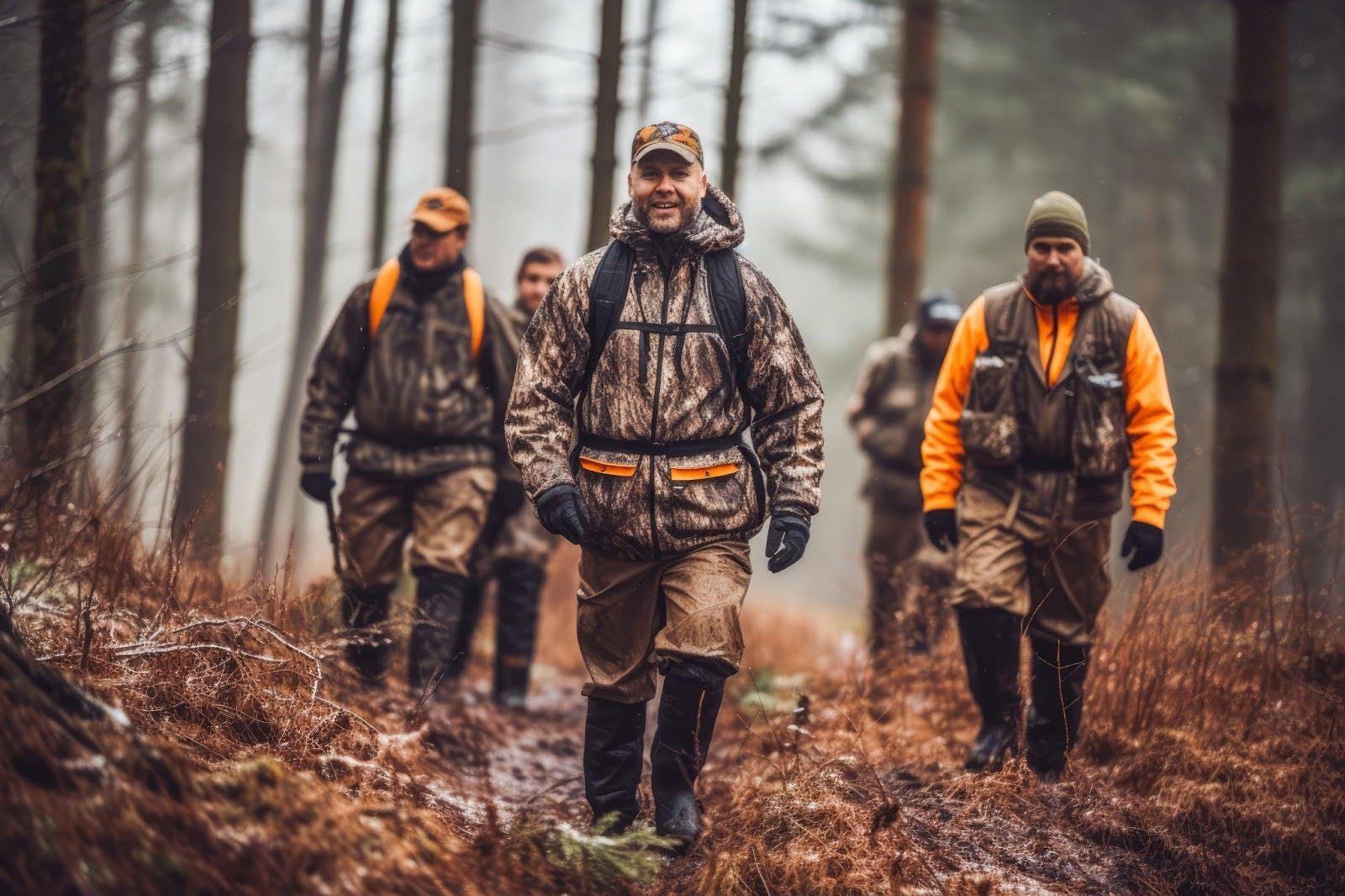Hunting season demands full physical commitment. You hike steep trails, climb ridgelines, and haul heavy packs across uneven terrain. Each step tests your strength, endurance, and mental focus. If you want to reach remote areas, stay sharp, and make every shot count, you need to train your body for the hunt.
Improving your fitness sharpens your aim, steadies your breathing, and helps you move quietly through tough terrain. When your body feels strong, you stay alert, make quicker decisions, and confidently handle high-stress moments.
In this guide, you’ll learn how to build the endurance, strength, and mobility you need for a successful hunting season. Whether you’re chasing elk above the timberline or packing out a hard-earned trophy, these fitness tips will help you go farther, hunt longer, and recover faster.
Build your endurance with cardio
Boost your stamina so you can hunt longer, hike farther, and stay sharp in high elevations. Thin air and steep climbs demand strong cardiovascular fitness, especially on multi-day hunts.
Train with cardio that mirrors hunting movements. Hike with a weighted pack to build leg strength and simulate pack-outs. Run trails to improve lung capacity and adjust to uneven ground. Cycle hills to increase endurance without stressing your joints.
Schedule three to five cardio sessions weekly. Mix short, high-intensity workouts with longer efforts. Try hiking with weight a few times a week, add trail runs or hill sprints, and include one long-distance session. Strong endurance helps you move efficiently, recover quickly, and stay focused throughout the hunt.

Strengthen key muscle groups
Train your legs, core, and back to handle the demands of rugged terrain and heavy pack-outs. These muscle groups support balance, stability, and the strength you need to hike, climb, and haul gear for miles.
Use functional exercises like squats, lunges, and deadlifts to build lower body and back strength. Add planks to improve core stability for better control on uneven ground.
Include mobility work — hip openers, ankle stretches, and spinal twists — to prevent injury and keep your body moving efficiently. A strong, flexible frame lets you hunt longer, move better, and recover faster.
Train with your gear
Break in your boots, familiarize yourself with your pack, and prepare your body for the real-world challenges of hunting. Training with your actual gear gives you a major advantage when you step into the field.
Hike regularly in your hunting boots to toughen your feet and identify pressure points before they turn into blisters. Load your pack with the gear you plan to carry and adjust the weight to match the demands of your hunt. Use these sessions to fine-tune fit, adjust straps, and get comfortable with the load.
Choose trails that include steep inclines, rocky footing, and uneven terrain. These conditions help strengthen stabilizing muscles, improve balance, and prepare you for real pack-outs. As you vary your weight and route, you’ll condition your body for the stress of hauling meat and gear across long distances.
This kind of preparation reduces the risk of fatigue and injury and eliminates surprises with your equipment. By training in the gear you plan to hunt with, you’ll build confidence, move more efficiently, and stay focused when every step counts.
Improve your balance and agility
Balance and agility keep you steady and quiet across rough terrain. When you stalk game or navigate rocky slopes, strong coordination helps you move with control and precision.
Train with box step-ups, single-leg squats, and balance board drills to strengthen stabilizing muscles and sharpen your reaction time. Use uneven surfaces or added weight to increase difficulty and mimic real hunting conditions.
Incorporate yoga or dynamic stretching to boost flexibility and body control. These practices improve movement efficiency and reduce injury risk.
Focus on mental toughness
Mental toughness often decides whether you push through or call it quits. Fatigue, discomfort, and frustration can cloud your judgment and test your patience, especially during long hunts in harsh conditions. You need more than physical strength — you need grit.
Train your mind like you train your body. Start with cold showers to build resilience. Take on timed challenges, like high-rep workouts or tough hikes with a heavy pack, to strengthen your willpower. Long-distance treks push your limits and teach you how to stay composed when energy fades and obstacles stack up.
Practice mindfulness to sharpen your focus and stay calm under pressure. Simple breathwork techniques can help you lower your heart rate before a shot, manage stress when plans change, and maintain clarity in the field.
Dial in your nutrition and hydration
Fueling your body with the right nutrients gives you the energy and recovery support to train hard and hunt effectively. Clean, balanced meals help build endurance, strengthen muscles, and speed up recovery between workouts. Skip processed foods and focus on lean proteins, complex carbs, and healthy fats. Your training results depend on what you eat as much as how you move.
Start building good habits before the hunting season begins. Prepare meals rich in nutrients to support your workouts, and avoid crash diets that leave you drained. When the hunt approaches, pack field-ready snacks like jerky, trail mix, nut butter, dried fruit, and protein bars. These provide quick fuel without weighing down your pack or spoiling in remote conditions.
Hydration plays a critical role, especially during training and while hunting at high elevations. Dehydration leads to fatigue, headaches, and reduced focus, none of which you want in the field. Carry water on every hike, use electrolytes to replenish minerals, and drink regularly even when you don’t feel thirsty.
Simulate the hunt with real scenarios

The best way to prepare for a demanding hunt is to train like you’re already in the field. Mimic the physical and mental challenges you’ll face by incorporating elevation, effort, and environmental elements into your routine.
Doing so prepares your body and mind for what truly happens when it counts.
If possible, train at higher elevations to condition your lungs and legs. Climbing trails or hiking ridgelines builds stamina and teaches your body how to perform when oxygen runs thin. The more time you spend moving uphill in thinner air, the better you’ll handle steep ascents and long glassing sessions above timberline.
Practice shooting under pressure and fatigue. Hike a mile with a loaded pack, then immediately draw your bow or shoulder your rifle. This simulates the adrenaline and exertion you’ll feel when the opportunity finally presents itself. Firing while winded helps you control your breathing, steady your aim, and make ethical shots even when your heart pounds.
Scout during the preseason to combine fitness with field readiness. Carry your gear, hike likely routes, and glass potential bedding or feeding areas. These real-world reps build strength and endurance and increase your familiarity with terrain and animal movement.
Prepare for the best hunt possible with R& K Hunting
When you train with purpose, you move farther, hunt longer, and make smarter decisions under pressure.
If you want to take your hunt to the next level, team up with experts who match your drive. R&K Hunting Company offers guided hunts that combine physical challenge with unforgettable reward. Our seasoned guides know the terrain, the game, and how to help you succeed. Whether you’re chasing elk in the high country or tracking antelope across open plains, contact R&K to make every step count.

